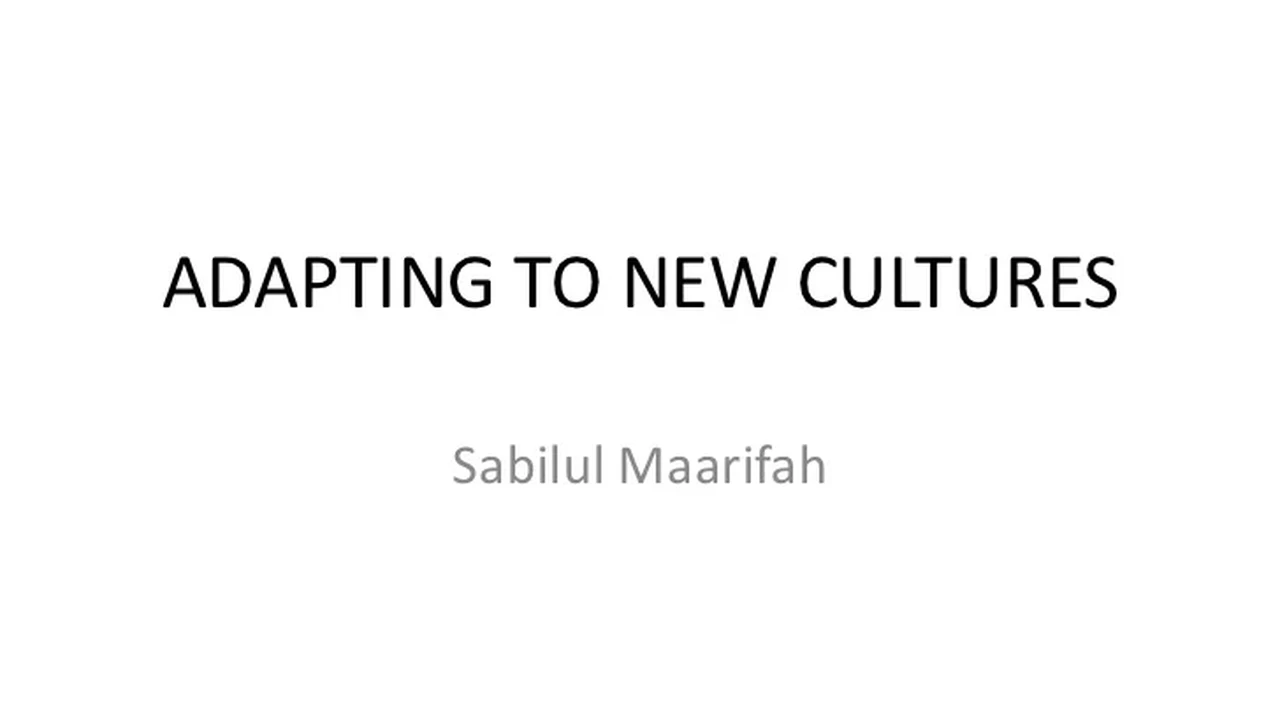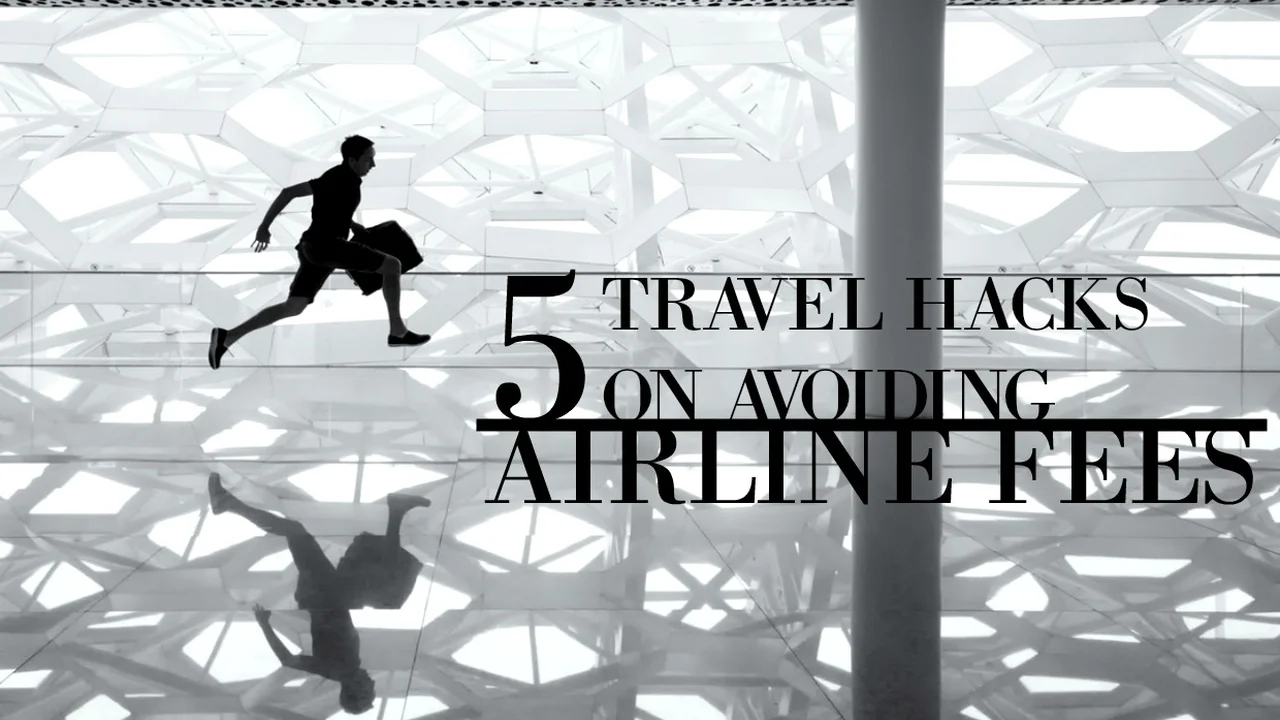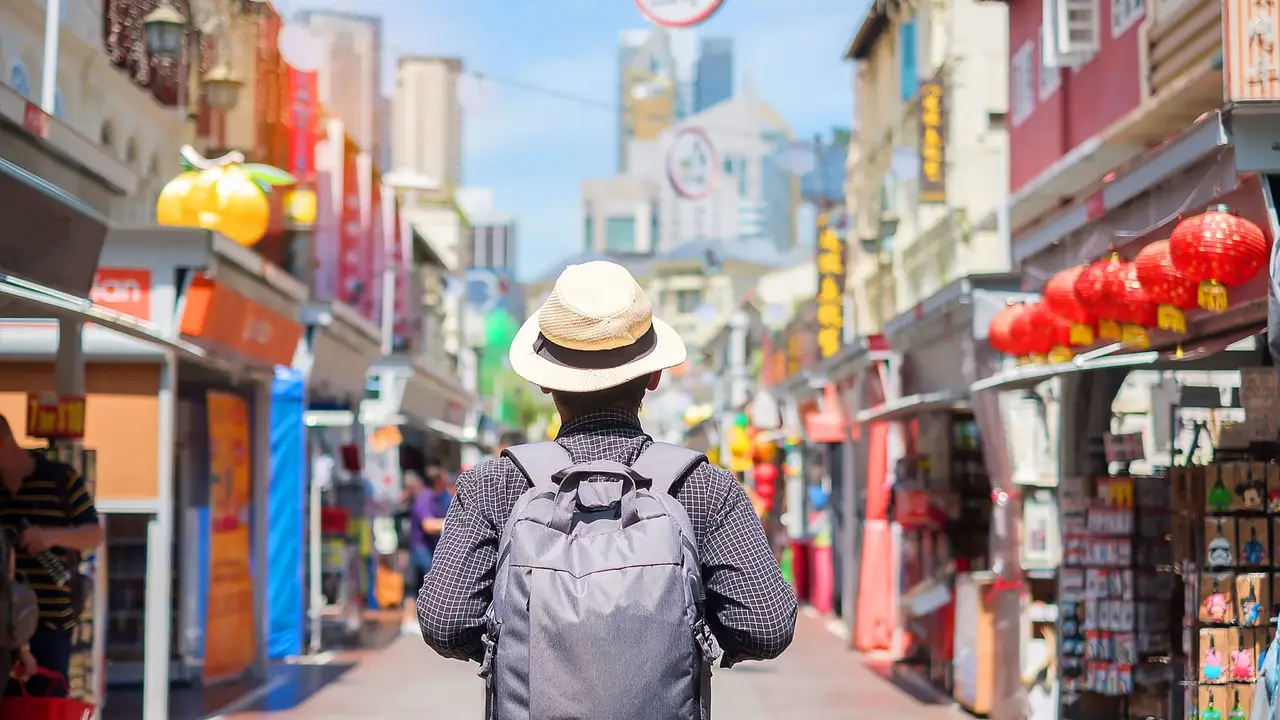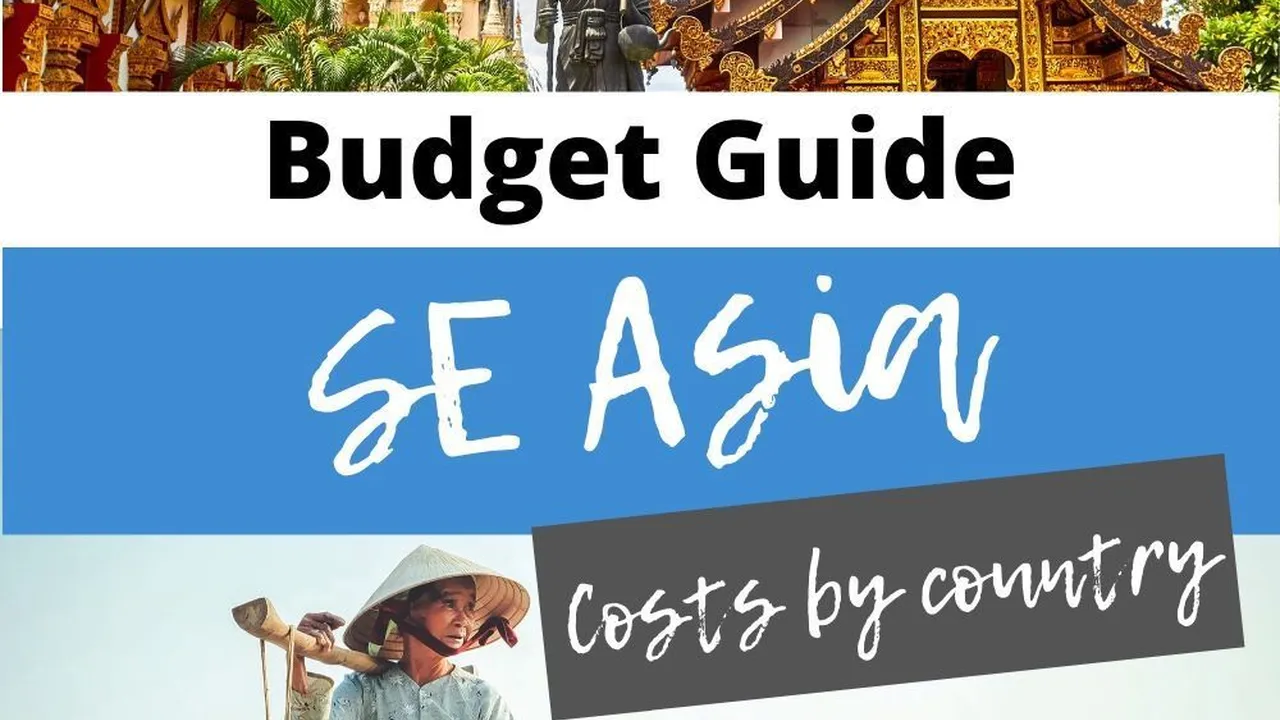Adapting New Cultures
Immerse yourself in local cultures and enhance your travel experiences. This guide provides practical tips for engaging with local communities, respecting customs, and learning new languages. Deepen your understanding of the world.

Understanding Cultural Differences Adapting to New Environments
Okay, so you've landed in a new country, ready to embrace the digital nomad life. Awesome! But before you dive headfirst into that spicy Pad Thai or attempt to haggle like a local in a bustling market, let's talk about adapting to new cultures. It's not just about ticking off tourist attractions; it's about understanding and respecting the local way of life. Think of it as unlocking a secret level in the game of life – the \"Cultural Sensitivity\" level.
First things first: ditch the \"my way or the highway\" attitude. What's perfectly acceptable in your home country might be a major faux pas somewhere else. For example, loud talking on public transport might be fine in some places, but considered incredibly rude in others. The key is observation. Watch how locals interact, listen to their conversations (even if you don't understand the language), and pay attention to social cues. It's like being a detective, but instead of solving a crime, you're deciphering cultural norms.
Respecting Local Customs Cultural Sensitivity for Digital Nomads
Respect is non-negotiable. It's the foundation of any successful cultural adaptation. And it goes beyond just saying \"please\" and \"thank you.\" It's about understanding the values and beliefs that underpin a culture and acting accordingly. This might mean dressing modestly when visiting religious sites, removing your shoes before entering someone's home, or avoiding public displays of affection in certain areas. A little research goes a long way. Before you arrive in a new country, spend some time learning about its customs and traditions. Websites like Culture Crossing and Kwintessential are great resources.
Don't be afraid to ask questions, but do so respectfully. If you're unsure about something, politely inquire. Most locals will appreciate your effort to understand their culture. Just be mindful of your tone and body language. A genuine interest in learning is always well-received. Remember, you're a guest in their country, so treat their culture with the same respect you would want them to treat yours.
Learning Basic Phrases Language Learning for Cultural Immersion
Okay, I know learning a new language can be daunting, especially if you're juggling work and travel. But even mastering a few basic phrases can make a huge difference. Imagine being able to order your coffee in the local language or ask for directions without resorting to awkward hand gestures. It shows that you're making an effort to connect with the locals and appreciate their culture. Plus, it opens up doors to conversations and experiences you might otherwise miss out on.
There are tons of resources available for language learning, from apps like Duolingo and Babbel to online courses and language exchange partners. Start with the essentials: \"hello,\" \"thank you,\" \"please,\" \"excuse me,\" and \"where is...?\" Even a small amount of effort will go a long way. And don't be afraid to make mistakes! Locals are usually very forgiving and will appreciate your attempt to speak their language, even if your pronunciation is a little off.
Embracing New Experiences Open-Mindedness and Cultural Exploration
This is where the fun begins! Cultural adaptation isn't just about avoiding awkward situations; it's about embracing new experiences and stepping outside your comfort zone. Try new foods, attend local festivals, visit historical sites, and talk to people from different backgrounds. The more you immerse yourself in the local culture, the more you'll learn and grow. And who knows, you might even discover a new passion or hobby along the way.
Be open to trying things you wouldn't normally do. Maybe that means eating insects (a delicacy in some parts of Southeast Asia), participating in a traditional dance, or volunteering for a local charity. These experiences will not only broaden your horizons but also give you a deeper understanding of the culture. And remember, it's okay to feel a little uncomfortable at times. That's part of the learning process. Just keep an open mind and a positive attitude, and you'll be amazed at what you discover.
Navigating Social Situations Cultural Etiquette and Social Norms
Social situations can be tricky, especially when you're unfamiliar with the local customs. Things like greetings, dining etiquette, and gift-giving can vary significantly from culture to culture. For example, in some countries, it's customary to bow when greeting someone, while in others, a handshake is the norm. Similarly, dining etiquette can range from using chopsticks to eating with your hands.
Do your research beforehand and pay attention to social cues. If you're invited to someone's home for dinner, it's usually polite to bring a small gift. And when dining out, be mindful of table manners and avoid doing anything that might be considered rude. If you're unsure about something, err on the side of caution and follow the lead of the locals. A little bit of observation and common sense can go a long way in navigating social situations successfully.
Recommended Products for Cultural Adaptation
Okay, so you're ready to dive into cultural adaptation, but you're not sure where to start? Here are a few recommended products that can help you navigate new cultures with ease:
Pocketalk Language Translator Adapting to Language Barriers
This little gadget is a lifesaver when you're struggling to communicate in a foreign language. It translates spoken words in real-time, making it easy to have conversations with locals. It supports over 80 languages and can even translate written text. The Pocketalk translator retails for around $300 and is an excellent investment for serious travelers.
Use case: You're trying to order food at a local market, but the vendor doesn't speak English. Simply speak into the Pocketalk, and it will translate your words into the local language.
Comparison: While Google Translate is a free alternative, the Pocketalk offers more accurate translations and works offline, which is essential when you don't have access to Wi-Fi.
Lonely Planet Travel Guides Cultural Insights and Travel Tips
Lonely Planet travel guides are packed with information about local customs, traditions, and etiquette. They also provide practical tips on everything from transportation to accommodation. A Lonely Planet guide typically costs around $20 and is a must-have for any digital nomad.
Use case: You're planning a trip to Thailand and want to learn about the local customs and traditions. The Lonely Planet Thailand guide will provide you with all the information you need.
Comparison: While there are other travel guides available, Lonely Planet is known for its comprehensive coverage and practical advice.
Anker PowerCore Portable Charger Staying Connected on the Go
Staying connected is crucial for digital nomads, and a portable charger is essential for keeping your devices powered up on the go. The Anker PowerCore is a reliable and affordable option that can charge your phone multiple times. The Anker PowerCore retails for around $30 and is a must-have for any traveler.
Use case: You're exploring a new city and need to use your phone for navigation, but your battery is running low. Simply plug your phone into the Anker PowerCore and keep exploring.
Comparison: While there are other portable chargers available, the Anker PowerCore offers a good balance of price and performance.
Noise Cancelling Headphones Reducing Distractions Adapting to New Environments
Sometimes adapting to a new culture can be challenging, especially if you are a sensitive person, noise-canceling headphones can help you reduce distractions and focus on your work. They are also great for long flights and train rides. Popular brands include Bose and Sony. The price range for quality noise-canceling headphones is $200 - $400.
Use case: You are working in a crowded coffee shop, and the noise is distracting you. Put on your noise-canceling headphones and focus on your work.
Comparison: There are many noise-canceling headphones on the market, but Bose and Sony are known for their superior noise cancellation and sound quality.
:max_bytes(150000):strip_icc()/277019-baked-pork-chops-with-cream-of-mushroom-soup-DDMFS-beauty-4x3-BG-7505-5762b731cf30447d9cbbbbbf387beafa.jpg)






